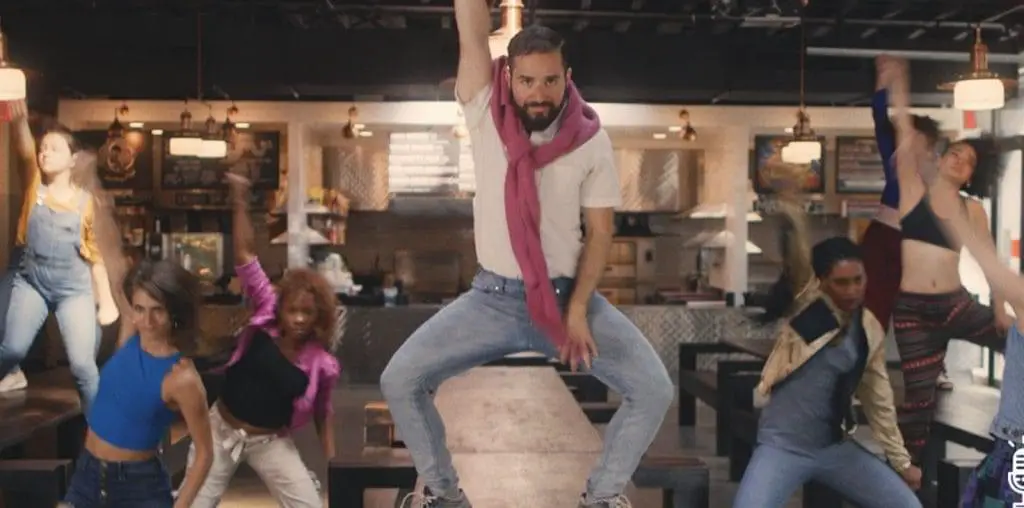
When we first meet Joe, he’s dreaming of a fun time at the beach with his wife and daughter Lizzie (Hannah Frantz). After he awakens, it becomes clear that something tragic has happened to Joe, as he now walks with the aid of a cane, and his wife is nowhere to be found. Instead, it’s Joe and Lizzie getting ready for their day, one where Joe will drop his daughter off for school, and go to work, with lunch at the local bar, where those around him will delicately try not to bring up the tragedy, even though they can see he is having trouble moving on. Well, except for one man, Rumsfield (Brian Buckley Smith), who is convinced Joe is just crazy, not worthy of his empathy or sympathy, and needs to go somewhere else.
Clarke M. Smith’s Crazy Joe is a film that, perhaps not from the synopsis above but certainly within a few minutes of watching, you can see where it is going. Major plot developments aren’t necessarily telegraphed, but if you get a weird sense that something is off, and if you think you know what that might be… you’re probably right.
Which isn’t a massive blow to the film, honestly. Having an inkling of what’s to come doesn’t take away from how the film works; this isn’t one of those films that lives or dies by its “twist.” In this case, it’s a drama about severe loss and (barely) coping with that loss. Certain narrative truths do not diminish that effect.
Still, this is also a short film that is not short, rolling along over thirty minutes. While the study on loss and grieving is important, the entire film suffers from an inability to move on in a timely manner. Going back to the narrative elements you may have predicted, once certain thoughts are in your mind, and you think you know what’s coming, the film begins to feel drawn out until it proves you right (or wrong).
Do I think the elements in this film work? Yes. Do I think they sustain the thirty-plus minutes? No. Honestly, this film achieves a lot early on, and then it just seems like it’s treading water until the resolution. At half its running time, you could have something truly powerful where the elements that need to make a surprising impact can do so before you start predicting what’s going on.
Visually, the film looks pretty good, with strong composition. There’s a sequence involving photo-manipulation effects that doesn’t quite work as it needs to (because the photos very clearly look altered), but otherwise the film is technically sound. The pace is slow, as I’ve already mentioned, but that was clearly a creative choice and not a lack of editorial knowledge.
Overall, I found Crazy Joe to be a good film that is just far longer than it needs to be. I think its length allows the mind to spin so much that it can start to diminish the intended effects of certain elements. While it doesn’t entirely disrupt the film’s study of loss, it doesn’t allow the film to hit as hard as it could otherwise, making for a less memorable impact.
Then again, maybe I’m not the audience. I would be interested in seeing what those who’ve suffered similar tragedies would think about the film. Would it be spot-on? Hold hidden truths I can’t see? Or would it just piss them off? I don’t know, but as someone who has experienced it all as simply another narrative tale, my feelings are above.
This film was submitted for review through our Submission for Review system. If you have a film you’d like us to see, and we aren’t already looking into it on our own, you too can utilize this service.

Thanks Film Threat! We appreciate your review. Well written and thought out.